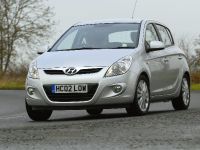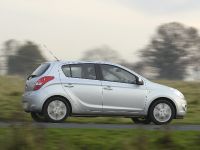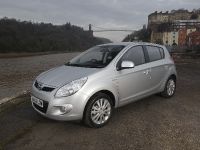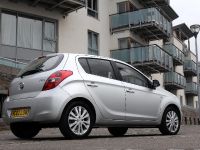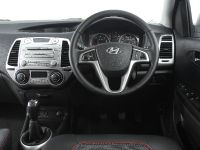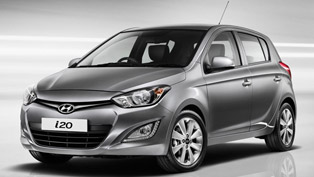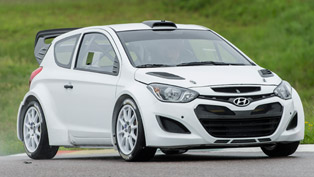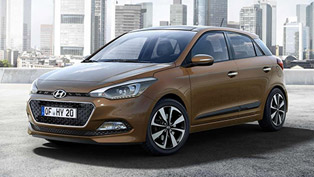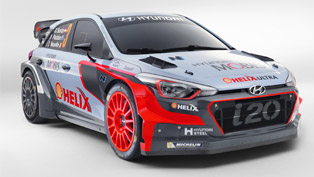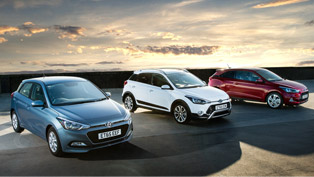More for less – Hyundai reveals i20 prices
anuary sales might have started early on the high street, but anyone buying a small car could well wonder what's happened to small prices. The cost of hatchbacks has crept so far upwards that a mid-range supermini now typically costs more than five-figures.
But Hyundai i20 buyers are set to be pleasantly surprised. Despite having exceptional levels of space, quality and safety – plus dynamics which can take on and beat the best from Europe and Japan – the little Hyundai is still priced at least £1,000 lower than mainstream rivals.
When it goes on sale in the new year, the entry level 1.2-litre Classic will start at just £8,195 for the three-door with a five door costing an extra £450. Despite the low price, all i20s are equipped with air-conditioning, six airbags, active head restraints, remote locking, electric front windows and an aux-in socket. In addition there is the reassurance of Hyundai's Five Year Unlimited Mileage Warranty – unique in this class.
The mid-range Comfort model – expected to be the best seller and starting at £8,995 – adds 15-inch alloy wheels, body colour door mirrors and handles, electric rear windows, full iPod integration, steering wheel mounted audio controls, a trip computer and a six-speaker system.
Flagship of the i20 range is the Style, equipped with 16-inch alloys, climate control, part-leather upholstery, metal-look facia and front fog lights.
There is plenty of new technology under the bonnet too. The i20 debuts with two new petrol and diesel engines, starting with an advanced 78PS 1.2-litre ‘Kappa' petrol which is expected to be the range's biggest seller. Its CO2 rating of just 124g/km is around 15g less than similarly-sized petrol engines from rivals and it returns 54.3 mpg on the combined cycle.
Next up in the range is a 1.4-litre, 100PS 1.4-litre petrol borrowed from the i30. In the i20 it returns 50.4mpg on the combined cycle and produces 133g/km – better that some rivals' 1.0-litre engines!
Meeting the demand for low-emission, high economy diesel power, the i20's all-new CRDi engines both have a 1.4-litre capacity and offer 75PS or 90PS. Emissions and fuel economy figures are exceptional – at just 116g/km and 64.2 mpg for the 75PS version and 118g/km and 62.8 mpg for the larger-wheeled 90PS model. This places both i20 diesels in band ‘B' for VED, making a tax disc cost just £35/year. Furthermore, company car drivers will find they are taxed for benefit-in-kind at just 13% – offering significant savings for those wanting to downsize.
And just because it's smaller, doesn't mean it's less safe. It is Hyundai's aim to make the i20 the safest car in the supermini class. The company doesn't believe safety should be limited to the more expensive models in the range either – Active Head Restraints and a total of six airbags are standard on all i20s.
Five door models will go on sale January 15, with the first three-door i20s arriving in April. A full list of prices appears below:
|
i20 |
Classic |
Comfort |
Style |
||||
|
Petrol |
BHP |
CO2/km |
3 door |
5 door |
3 door |
5 door |
5 door |
|
1.2 |
77 |
124g |
£8,195 |
£8,645 |
£8,995 |
£9,445 |
- |
|
1.4 |
99 |
133g |
- |
- |
£9,495 |
£9,945 |
£10,845 |
|
1.4 Auto |
99 |
146g |
- |
- |
- |
£10,845 |
- |
|
Diesel |
|
|
|
|
|
|
|
|
1.4 CRDi |
74 |
116g |
- |
- |
£9,995 |
£10,445 |
- |
|
1.4 CRDi |
89 |
118g |
- |
- |
- |
- |
£11,845 |
